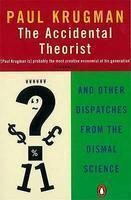 24.0%OFF
24.0%OFF

Download App
| >> | LShop | >> | Book | >> | Society & Social Sci... | >> | Politics & Governmen... | >> | Welfare State Change... |
 24.0%OFF
24.0%OFF
Welfare State Change: Towards a Third Way?
-
ISBN
:
9780199266739
-
Publisher
:
Oxford University Press, USA
-
Subject
:
Politics & Government, Economics, Sociology & Anthropology
-
Binding
:
PAPERBACK
-
Pages
:
248
-
Year
:
2004
₹
2341.0
 24.0% OFF
24.0% OFF
₹
1779.0
Buy Now
Shipping charges are applicable for books below Rs. 101.0
View DetailsEstimated Shipping Time : 5-7 Business Days
View Details-
Description
The politics of the Third Way reflects an attempt by many contemporary social democracies to forge a new political settlement which is fitted to the conditions of a modern society and new global economy, but which retains the goals of social cohesion and egalitarianism. It seeks to differentiate itself as distinct from the political ideologies of the New Right and Old Left. Though commonly linked to the US Democratic Party in the Clinton era, it can also be traced to the political discourses in European social democratic parties during the mid-1990s, most notably in France, Germany, the Netherlands, and the United Kingdom. In social policy terms the model attempts to transcend the old alternatives of the state and the market. Instead, civil society, government, and the market are viewed as interdependent and equal partners in the provision of welfare, and the challenge for government is to create equilibrium between these three pillars. The individual is to be 'pushed' towards self-help, and independent, active citizenship, while business and government must contribute to economic and social cohesion. This book provides a comprehensive and critical analysis of 'Third Way' social policy and policy processes in the welfare systems of industrialized economies, and examines the extent to which 'Third Way' ideology and institutional structures converge or vary in different national settings. It examines substantive areas of public policy in a broad comparative context of key trends and debates. By assessing the extent to which the post-war social contract in developed welfare states is being renegotiated, the text contributes to a better understanding of the current restructuring and modernization of the State. Finally the book explores the implications of the new politics of welfare for theorizing inequality, social justice, and the future of welfare.
Related Items
-
of












 1779.0
1779.0






 300.0
300.0















